Saudi King Invites Syria's Assad To Attend Arab League Summit
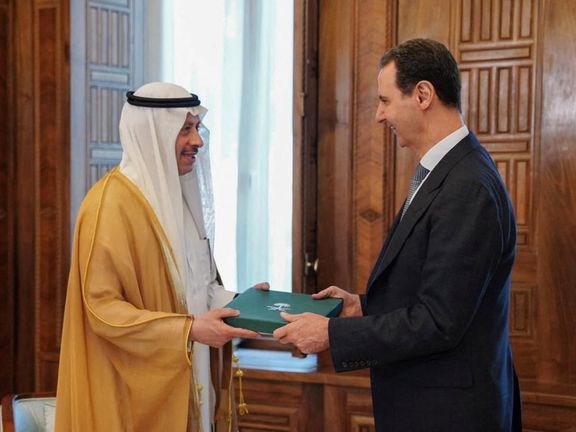
Saudi Arabia's King Salman bin Abdulaziz has invited Syria's President Bashar al-Assad to attend an Arab League summit on May 19, Syrian state media reported Wednesday.

Saudi Arabia's King Salman bin Abdulaziz has invited Syria's President Bashar al-Assad to attend an Arab League summit on May 19, Syrian state media reported Wednesday.
Arab foreign ministers had on Sunday agreed that Syria could resume its role in the body, 12 years after its membership was suspended over Assad's crackdown on protests against him.
The invitation to the summit that will take place in Saudi Arabia, is a powerful signal that the regional isolation of Assad and his war-battered country is ending.
Regional countries - including Saudi Arabia, Qatar and others - had for years supported anti-Assad rebels but Syria's army, backed by Iran, Russia and allied paramilitary groups, regained most of the country.
The icy ties with Assad began to thaw more quickly after the devastating earthquakes in February. Saudi Arabia's foreign minister visited Damascus last month and his ministry on Tuesday said that the kingdom will reopen its diplomatic mission in Damascus.
Saudi Arabia also reached agreement with Iran in march to normalize relations after a seven-year hiatus, opening the way for rapprochement with its ally, the Syrian government.
Sources had told Reuters in April that Assad would be invited to the summit. While Arab countries appear to have brought the Syrian leader in from the cold, they are still making key demands for him to curb Syria's flourishing drugs trade and secure the return of refugees.
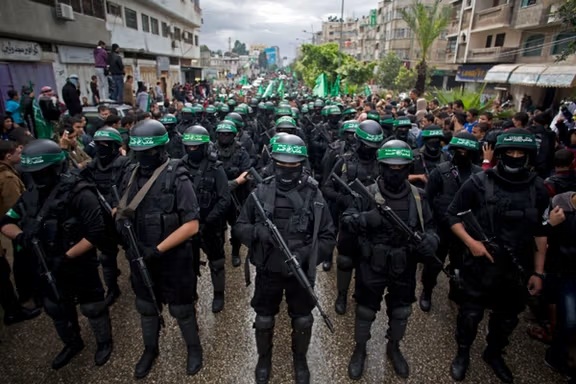
Iran has urged Hamas to join Islamic Jihad in a new round of attacks against Israel following the killing of three militants in Gaza, Iran International has learned.
According to informed sources, Tehran exerted strong pressure on Hamas to respond to assistance it has received over the years and unite with Islamic Jihad, a close affiliate of the Iranian regime, to launch a fresh wave of attacks.
In a surprise air strike early Tuesday, Israel killed three Islamic Jihad commanders in Gaza, who had planned attacks from Gaza and the Israeli-occupied West Bank.
A large number of rockets were fired from Gaza into Israel Wednesday afternoon, in what appeared to be Palestinian retaliation for the targeting of Islamic Jihad commanders.
Dawoud Shehab, a spokesperson for the Iranian-backed Islamic Jihad, had said Israel "must expect a response at any moment and anywhere,” but one day after the air strike, a tense calm still prevailed.
The chief of Iran’s general staff Mohammad Bagheri said Wednesday that Iran “will assist Palestine with all its power,” according to Tasnim news agency affiliated with the Revolutionary Guard (IRGC).
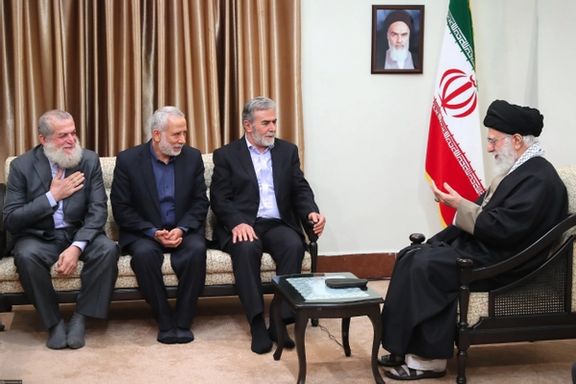
Meanwhile, one source told Iran International that Tehran’s pressure has deepened existing policy disagreements among Hamas leaders.
As a tense calm prevailed earlier on Wednesday, Prime Minister Benjamin Netanyahu said Israel is ready to fight Iran on multiple fronts if needs be. He insisted that “95% of Israel’s security problems come from Iran,” referring to “an attempt by Iran to start a multi-front campaign against us.”
Israel blamed Iran for a large-scale military confrontation in early April when Palestinian groups aligned with the Islamic Republic launched hundreds of rockets against Israel from Gaza and Lebanon.
Iranian officials did not try to hide their satisfaction that the “resistance front”, as they call their militant proxies in the region, had “humiliated Israel.” IRGC commander, in particular, call for more military action, boasting that end of Israel is near.
Israel “will do all it can to prevent Iran from establishing terror fronts around us,” Netanyahu said at a conference for a right-leaning group of former senior defense officers.
Iran International’s sources say Hamas leaders in Gaza understand that a new military confrontation will hurt Palestinian civilians and their livelihood. They also have to face the danger of being targeted by Israel. However, leading figures living outside Palestinian territories and enjoying more security and close cooperation with Iran advocate for joining the Islamic Jihad in a new confrontation with Israel.
Iran reached a Chinese-brokered agreement with Saudi Arabia in March to restore diplomatic relations after a seven-year hiatus. Official in Tehran have repeatedly claimed that the move was a strategic defeat for the United States and a victory for Iran.
Having partly reduced their isolation in the region, the Iranian regime seemed emboldened and intensified its rhetoric against Israel in March and April.
Meanwhile, Israel is not just concerned about attacks by Tehran’s proxies and allies, but is also worried about its expanding nuclear program.
By most estimates Iran has accumulated enough enriched uranium to be able to build up to five nuclear weapons within a few months.
Netanyahu also reiterated in statements on Tuesday and Wednesday that Israel will do all it can to stop Iran from obtaining a nuclear weapon and will try to prevent Iran from “establishing terror fronts around us.”
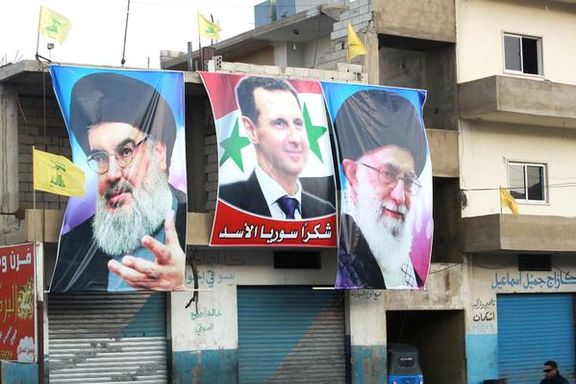
Iranian-backed militia forces in Syria have started removing Islamic Republic's flags from their bases, apparently by the request of the government in Damascus.
The Britain-based Syrian Observatory for Human Rights reported Monday that Tehran-linked militias such as LiwaZainebiyoun and Liwa Fatemiyoun are removing the Iranian flags as well as banners of prominent figures upon a request by Damascus.
The symbols of Iran and its proxies are being removed from the cities of Abu Kamal and Mayadin in Deir ez-Zor governorate and Palmyra in Homs. The banners and flags were replaced with the internationally recognized Syrian flag.
According to the observatory, the development came as part of the Syrian regime's pledge to Arab countries as one of the conditions to rejoin the Arab League, and that Damascus has accepted that Iran-backed militias exit the country. However, the war monitor noted that none of the members of the Iranian-affiliated forces have withdrawn from Syrian territories.
The removal of the flags coincided with Iranian President Ebrahim Raisi's visit to Damascus last week, and the signing of a “long-term strategic comprehensive cooperation” deal in addition to 14 other agreements, and renewing allegiance with groups fighting against Israel.
Official Arab sources have not mentioned any condition put forth for removing. the flags. It is possible however that Iran is trying to keep a lower profile in Syria.
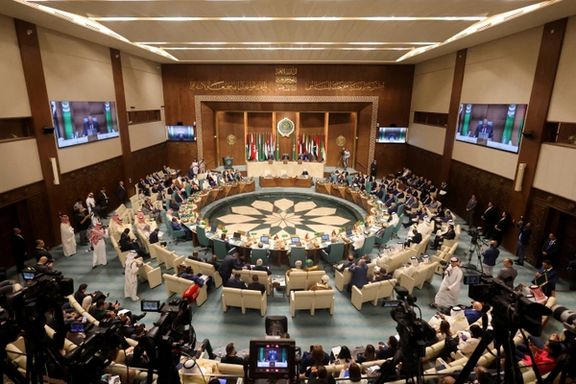
At the same time, it can only be a tactic to avoid frequent Israeli attacks on their bases.
The Arab League readmitted Syria on Sunday after about 13-year-long suspension as President Bashar al-Assad pushes to normalize ties with other Arab nations. Syria had been barred from the organization in 2011 after a brutal government crackdown on anti-Assad protesters, which led to the country’s war.
Foreign ministers from the 22-nation group voted for Syria’s return at a meeting in Cairo ahead of the Arab League summit in Saudi Arabia on May 19.
The Iranian militias removed their flags that were raised on top of buildings in Ayash warehouses in western Deir ez-Zor countryside, concurrent with the arrival of commanders of Iran’s Revolutionary Guards – IRGC -- and Lebanese Hezbollah to Qasem Soleimani camp in the countryside, the observatory said in another report.
The group claimed that a convoy comprised of 12 four-wheel-drive cars of IRGC officers set off from Al-Joura neighborhood on Sunday to Ayash warehouses, where they met with Hezbollah members. “The Iranian militias repositioned and changed their military headquarters in fear of being attacked, following the recent strikes ton their positions,” the observatory claimed.
The restoration of ties with Damascus quickened following the deadly February 6 earthquake in Turkey and Syria, and the Chinese-brokered détente between Saudi Arabia and Iran, which had backed opposing sides in the Syrian conflict.
Emphasizing that the crisis in Syria is not yet over, the Arab League called for resolving the crisis resulting from Syria’s civil war, including the flight of refugees to neighboring countries and drug smuggling across the region.
On Monday, Jordan carried out rare airstrikes on southern Syria, hitting an Iran-linked drugs factory and killing a smuggler allegedly behind big hauls across the two countries' border, local and intelligence sources said.
Almost all of the strikes against Iran-aligned forces in Syria have been carried out by Israel since 2017, which has vowed to prevent the Islamic Republic’s entrenchment in the country. Israeli strikes in recent weeks have seen key Iranian military figures killed from the Revolutionary Guards and the Quds Force.
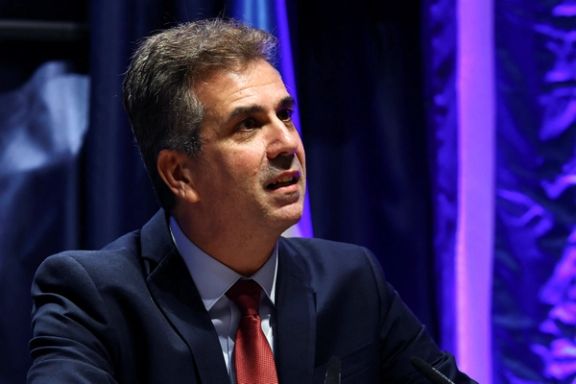
Israel's foreign minister discussed efforts to establish diplomatic relations with additional Middle East countries in a call with US Secretary of State Antony Blinken Monday, the ministry said.
White House national security advisor Jake Sullivan had said Washington was working hard to forge ties between Israel and Saudi Arabia ahead of his visit to the kingdom last week, but the Israeli statement did not specify any countries.
"Foreign Minister Eli Cohen updated the Secretary of State on recent Israeli activity with the goal of promoting regional stability and the two discussed advancing additional normalization moves, as part of expanding and deepening the Abraham Accords," the statement said.
That referred to the 2020 US-brokered agreements Israel signed with Persian Gulf states, including the United Arab Emirates and Bahrain.
The statement added that Cohen met with US envoy Amos Hochstein in Jerusalem Monday and discussed "the advancement of diplomatic steps in the region".
Saudi Arabia signaled approval for the 2020 accords but has held off on following suit, saying Palestinian goals for statehood should be addressed first.
Normalizing relations with Saudi Arabia has been a major goal set by Israeli Prime Minister Benjamin Netanyahu and foreign minister Cohen last month said such a breakthrough was "on the table".
Any such prospects have been clouded, however, by Riyadh's strains with US President Joe Biden, its recent rapprochement with regional foe Iran, and the rise of Netanyahu's hard-right Israeli government.
Report by Reuters
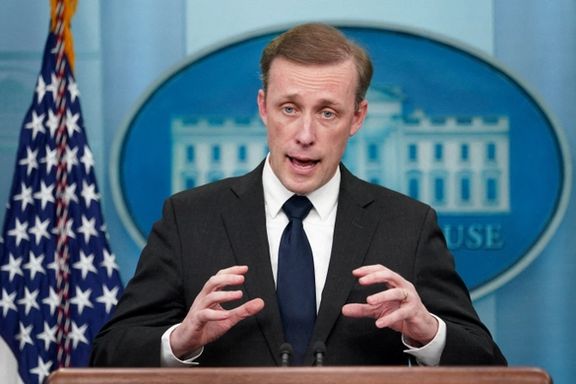
The overall picture of US National Security Advisor Jake Sullivan’s trip to Saudi Arabia and his meeting with Crown Prince Mohammed bin Salman remains somewhat unclear.
Sullivan met bin Salman on Sunday and reviewed what the White House called "significant progress" in Yemen peace efforts, but there was no acknowledgment if the expansion of the Abraham Accords or issues related to Iran were discussed, apart from the Yemen conflict.
A statement released by the White House said the two sides reviewed “significant progress in talks to further consolidate the new 15-month long truce in Yemen.”
There have been reports and speculations in recent weeks that the United States has been working to bring Saudi Arabia and Israel closer and expand the Abraham Accords that saw Saudi allies, the United Arab Emirates and Bahrain establish diplomatic relations with the Jewish state in 2020.
A senior Israeli security official said on Friday that Israel was hoping for a breakthrough in efforts to normalize its ties with Saudi Arabia during Sullivan's visit there.
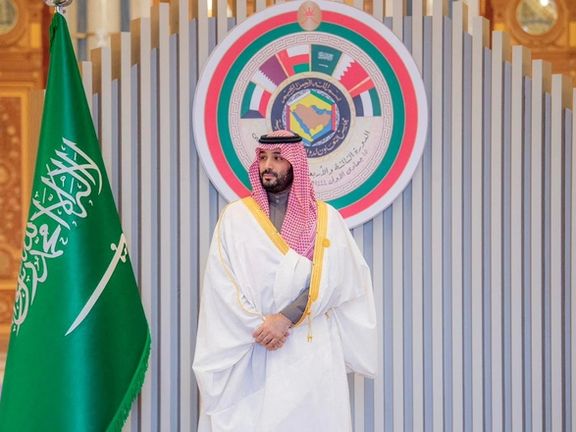
But the White House statement made no mention of Israel.
Saudi state media did not immediately publish either video or photographs of the meetings.
Saudi Arabia in March reached agreement with Iran to resume diplomatic relations, a deal that was brokered by China and seen as a sign of decline in American influence in the region, particularly with Riyadh.
Sullivan's meeting also came after a period in which US-Saudi ties have been damaged by oil production cuts by Saudi-led OPEC+ and differences over the 2018 killing of Washington Post journalist Jamal Khashoggi.
The Saudi state news report said only that the men reviewed “strategic relations” in a meeting that included other American officials.
Later, Sullivan took part in a meeting with the crown prince and Indian national security adviser Ajit Doval and Sheikh Tahnoon bin Zayed Al Nahyan, the national security adviser of the neighboring United Arab Emirates.
Washington is said to be interested in linking the Arab oil producing countries around the Persian Gulf in a rail network that would ultimately expand trade links with India, perhaps as a counterweight to growing Chinese influence.
A White House statement acknowledged the meetings, saying they aimed to “to advance their shared vision of a more secure and prosperous Middle East region interconnected with India and the world.” It did not elaborate.
Sullivan, President Joe Biden's top White House national security aide, also thanked the crown prince for Saudi support to US citizens during evacuation from Sudan, the statement added.
US special envoy Tim Lenderking travelled to Oman and Saudi Arabia earlier this month to seek to advance Yemen peace efforts, the State Department said.
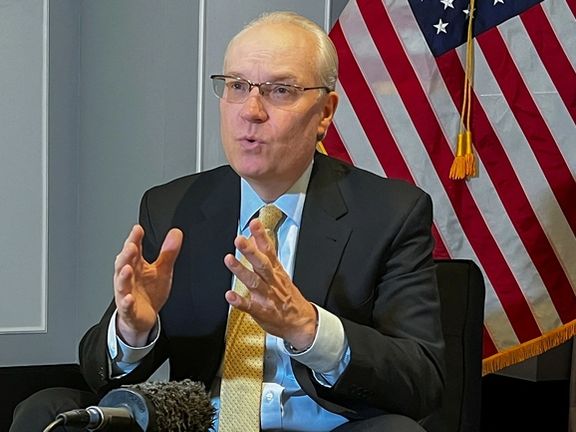
A Saudi-led military coalition intervened in Yemen in 2015 after the Iran-aligned Houthis ousted the government from the capital Sanaa.
A Saudi delegation, which is seeking a permanent ceasefire deal to end military involvement in the war, concluded peace talks in mid-April in Sanaa with the Houthi group, whose top negotiator said talks had made progress and further discussions would be held.
Yemen's conflict, which has killed tens of thousands of people and left millions hungry, has widely been seen as a proxy war between Saudi Arabia and Iran.
Based on reporting by Reuters, AP

The ranking member of the US House Select Committee on Intelligence told CNN Sunday that the prospect of more nuclear talks with Iran “is further away than ever before.”
Representative Jim Himes (D-Conn) who was visiting Israel with the Intelligence Committee Chairman Republican Mike Turner were interviewed by CNN’s Jake Tapper about what they heard from Israeli Prime Minister Benjamin Netanyahu about Iran’s nuclear program.
Himes said that Netanyahu was “very much focused” on the issue and told them many times that he could not imagine Iran armed with nuclear weapons.
Turner said the Israeli prime minister believes “Iran can be deterred and if they believe that there would be military action against them – some type of a surgical strike – that would diminish their ability to pursue nuclear weapons, that could have a chilling effect and could stall their programming.” He added that Netanyahu wants Iran to see that there is a risk of both the United States and Israel – together or separately – might take military action against its nuclear facilities.
Himes said, “The problem is that of course with Iran so brutally abusing its own people, the prospect for negotiations I think is arguably further away than ever before.”
The Biden administration decided early in its term to start indirect talks with Iran to revive the 2015 JCPOA accord that had restricted Iran’s uranium enrichment. President Joe Biden had said before the 2020 election that he opposed his predecessor’s decision to pull out of the JCPOA.
However, after 18 months, the negotiations reached a deadlock in September 2022 and since then Iran has continued uranium enrichment at 60 percent, accumulating enough fissile material for 4-5 bombs.